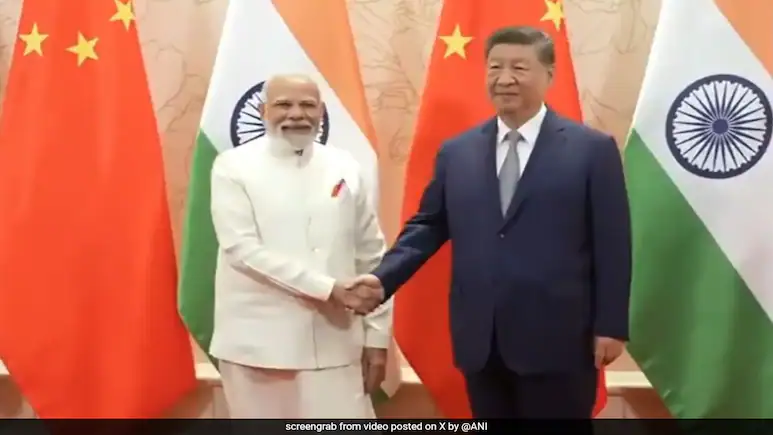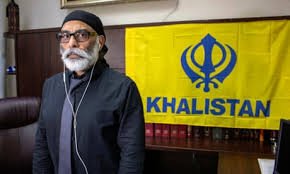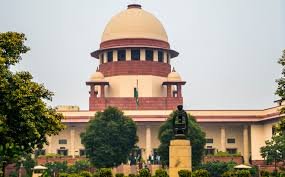Modi highlighted post-border disengagement stability and stressed cooperation in trade, Kailash Mansarovar Yatra, and direct flights between India and China.
BY PC Bureau
August 31, 2025: Prime Minister Narendra Modi on Sunday held bilateral talks with Chinese President Xi Jinping at Tianjin, underlining India’s commitment to strengthening bilateral relations. The meeting, which lasted about an hour, took place on the sidelines of the two-day Shanghai Cooperation Organisation (SCO) summit in Tianjin. It is PM Modi’s first visit to China in seven years.
During the meeting, Modi said India is “committed to taking our relations forward on the basis of mutual trust, respect, and sensitivity.” He highlighted that an “atmosphere of peace and stability” has been created following disengagement along the border and agreements reached by Special Representatives regarding border management.
Recalling their last meeting in Kazan, Russia, on the sidelines of the BRICS summit in October 2024, Modi said: “Last year in Kazan, we had very fruitful discussions, which gave a positive direction to our relations.”
The Prime Minister also discussed the resumption of the Kailash Mansarovar Yatra and direct flights between India and China. “The interests of 2.8 billion people of both countries are linked to our cooperation. This will also pave the way for the welfare of the entire humanity,” he said.
This visit assumes added significance amid a downturn in India-US relations, triggered by President Donald Trump’s imposition of high tariffs on Indian goods, including a 50% duty on Russian oil imports. Analysts have suggested that these tariffs could bring India and China closer economically, despite Washington’s efforts to maintain India as a strategic counterbalance in Asia.
READ: Manipur: Believe It or Not—Reporter Shot, Mistaken for Bird
The SCO Plus summit, chaired by China this year, sees participation from 20 foreign leaders, including Russian President Vladimir Putin. The 10-member bloc also includes Russia, Iran, Kazakhstan, Kyrgyzstan, Pakistan, Tajikistan, Uzbekistan, and Belarus. Modi’s visit to China and his bilateral meeting with Xi send a strong signal of India’s active engagement in the region’s multilateral frameworks, as well as its pursuit of balanced foreign relations.
During the discussions, Modi emphasized that the positive momentum in India-China relations has already yielded tangible outcomes: “After the disengagement on the border, an atmosphere of peace and stability has been created. Kailash Mansarovar Yatra has resumed, and direct flights between the two countries are being restored.”
Sharing my remarks during meeting with President Xi Jinping. https://t.co/pw1OAMBWdc
— Narendra Modi (@narendramodi) August 31, 2025
Experts see Modi’s meeting with Xi as more than a bilateral engagement. Einar Tangen, Senior Fellow at the Taihe Institute, noted: “At this juncture, India has an opportunity. We are at a time when bullying is striding the world stage, literally trying to take everyone’s lunch money for no apparent reason. India can stand up to it. India has been the balancing power both at SCO and BRICS.”
Before departing for Tianjin, PM Modi had stressed to Japanese media the importance of stable and amicable India-China relations for regional peace and prosperity. “Strong ties with China will have a positive impact on regional and global peace and prosperity. Stable, predictable, and amicable bilateral relations between India and China can have a positive impact on regional and global peace and prosperity,” he said, describing India-China ties as “crucial for a multi-polar Asia.”
READ: EXCLUSIVE: PM Modi May Visit Manipur on Sept 13; Police on High Alert, Leaves Cancelled
Modi’s visit follows Chinese Foreign Minister Wang Yi’s trip to India less than two weeks ago, which involved talks with Foreign Minister S. Jaishankar, National Security Advisor Ajit Doval, and a meeting with PM Modi. These engagements reflect a rapid normalization of ties between the two Asian powers, even as China continues to host the SCO summit and assert its influence in regional multilateral frameworks.
Analysts say the Modi-Xi meeting signals India’s intent to maintain a strong, independent foreign policy while engaging both global powers and regional neighbors. The meeting also sends a clear signal to the US amid rising trade tensions, particularly the tariffs imposed by Washington on Indian exports.
Modi noted that the SCO summit offers India a platform to engage with multiple global leaders, with 20 heads of state participating, including Vladimir Putin, and that cooperation with China is central to ensuring regional stability and economic integration.
The discussions also included reference to the broader humanitarian and economic benefits of closer cooperation between India and China, highlighting the interlinked interests of the 2.8 billion people in the two countries and the potential global impact of strengthened bilateral ties.














